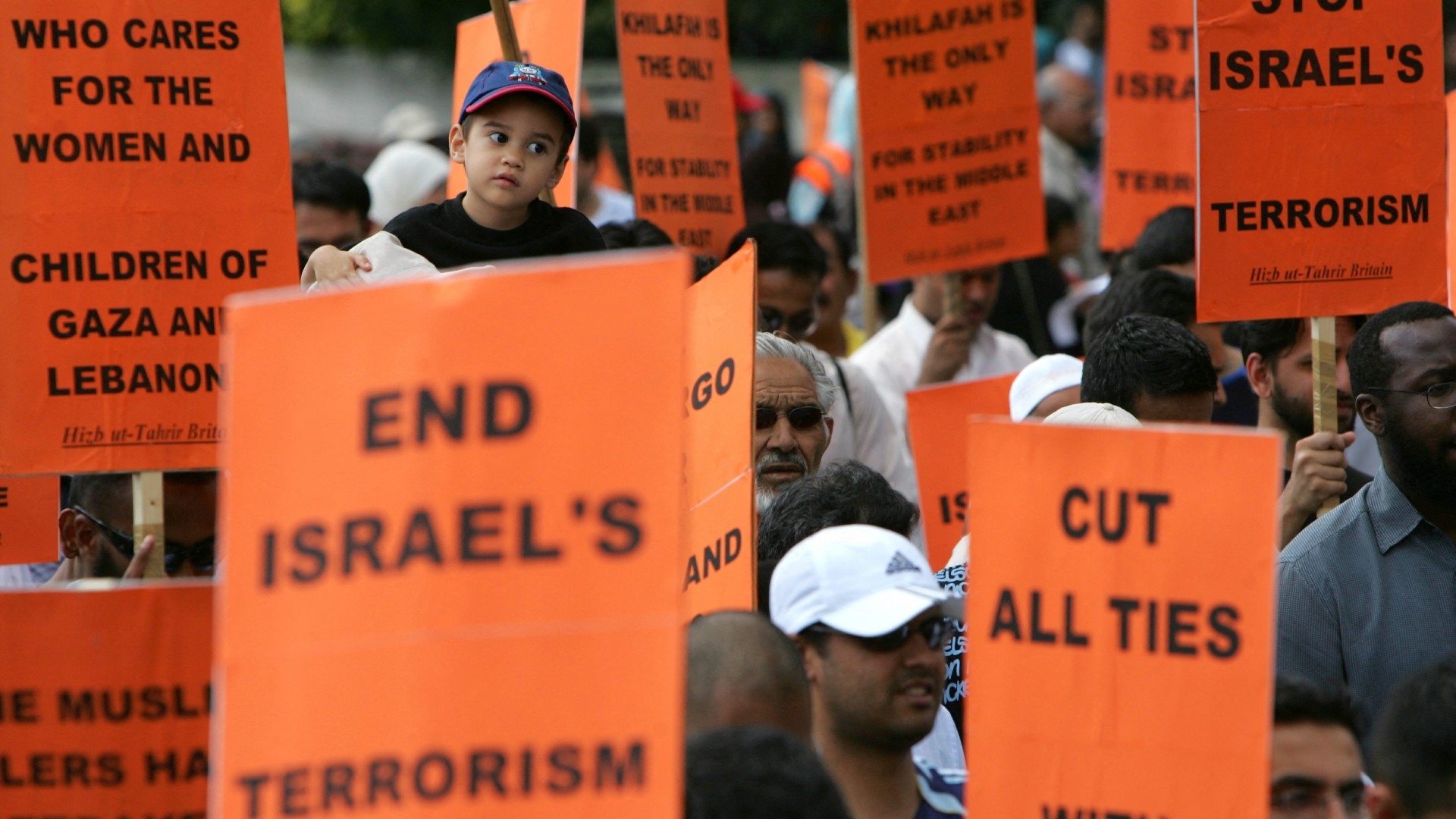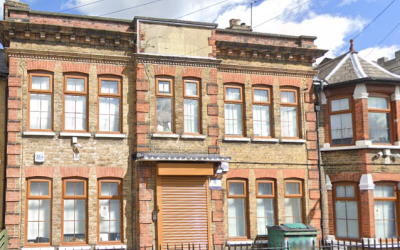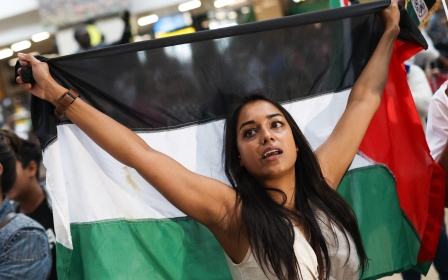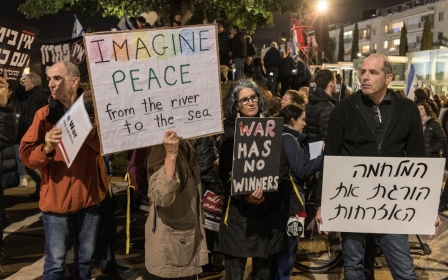UK home secretary announces plan to ban Islamic group Hizb ut-Tahrir

UK Home Secretary James Cleverly has said the British government will seek to ban the Islamic political party Hizb ut-Tahrir following claims the group is antisemitic.
Cleverly laid a draft order before parliament on Monday to proscribe the group under the Terrorism Act 2000.
Parliament will debate the proposal this week, and if agreed, the draft order will come into force by Friday.
It means belonging to, inviting support for and displaying articles in a public place in a way that arouses suspicion of membership or support for the group will be a criminal offence.
"Hizb ut-Tahrir is an antisemitic organisation that actively promotes and encourages terrorism, including praising and celebrating the appalling 7 October attacks," Cleverly said, according to a statement published on the UK government website.
New MEE newsletter: Jerusalem Dispatch
Sign up to get the latest insights and analysis on Israel-Palestine, alongside Turkey Unpacked and other MEE newsletters
"Proscribing this terrorist group will ensure that anyone who belongs to and invites support for them will face consequences. It will curb Hizb ut-Tahrir's ability to operate as it currently does."
The proscription of Hizb ut-Tahrir includes the global organisation, as well as all of its regional branches, including Hizb ut-Tahrir Britain.
'The use of anti-terrorism legislation to silence dissent and shrink civil society space has become one of the defining features of the time we live in'
- IHRC
On its website last month, Hizb ut-Tahrir said calls to ban the organisation in Britain were "a sign of desperation".
Former UK Prime Minister David Cameron tried to ban the group while in power, but was recommended to back down by a counter-terrorism watchdog.
The group - whose name translates to "The Islamic Liberation Party" - was established in Jerusalem in 1953 and uses non-violent means to achieve its goal of a caliphate in Muslim lands.
The draft order comes amid criticism of the group following demonstrations held in London against Israel's war on Gaza.
Shortly after Israel went to war on Gaza, the group called on armies in Muslim countries to "remove the Zionist occupiers."
'Ridiculous'
In a statement, Hizb ut-Tahrir said it "completely refutes any idea that it is anti-semitic or encourages terrorism".
"Hizb ut-Tahrir has a record of over 70 years of following a method of non-violent political activity against despots who rule the Muslim world with the West’s approval. In its work to establish the Islamic Khilafah (caliphate), Hizb ut-Tahrir has never resorted to any sort of violence or armed struggle," it said.
"Hizb ut-Tahrir Britain explicitly states that it will challenge the proposed proscription using all available legal means," it added.
Former British Ambassador to Uzbekistan Craig Murray, who was once part of a formal review that looked into banning the group, called the government' decision "ridiculous".
He further pointed out that the UK has investigated the group for 25 years and "the conclusion every time was that [Hizb ut-Tahrir] has a philosophy of non-violence and therefore should not be banned".
The UK-based advocacy group Cage also condemned the decision, calling it "an unparalleled assault on freedom of speech and association."
"The accusation that, after decades of peaceful activism, HT is now concerned in terrorism because of a single press release issued by the Palestinian branch of the movement reveals the government's subservience to Israeli policy," Cage said.
"Instead of tackling the threat to national security and community relations posed by the thousands of British citizens who will return from Israel having participated in a genocidal military campaign, the Home Secretary seems intent on leading the UK further into authoritarianism."
The London-based Islamic Human Rights Commission (IHRC) also condemned the decision, and accused the UK government of using "anti-terrorism laws to stifle legitimate political debate."
"IHRC is deeply concerned by the UK government's decision to proscribe Hizb ut-Tahrir as a terrorist organisation. The use of anti-terrorism legislation to silence dissent and shrink civil society space has become one of the defining features of the time we live in," it said in a post on X, formerly known as Twitter.
"Many of our concerns, including the use of anti terrorism laws to stifle legitimate political debate and participation have been reflected by other organisations, including the Fundamental Rights Agency.
"IHRC calls on civil society groups to make their concerns and opposition to this latest government overstep known."
Hizb ut-Tahrir, also known as HT, is banned in Middle Eastern countries such as Saudi Arabia, but is active in dozens of others including Kuwait, Tunisia, Lebanon, India, Kenya, Australia and the United States.
Middle East Eye delivers independent and unrivalled coverage and analysis of the Middle East, North Africa and beyond. To learn more about republishing this content and the associated fees, please fill out this form. More about MEE can be found here.





